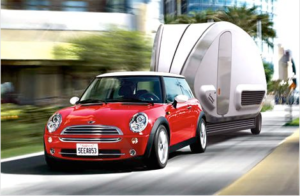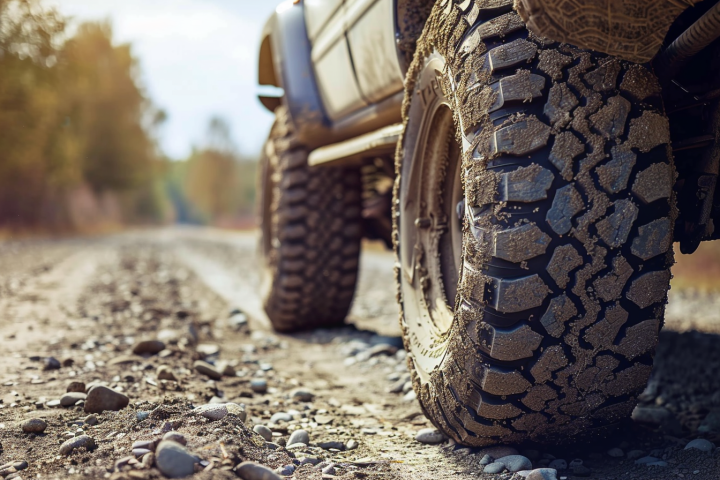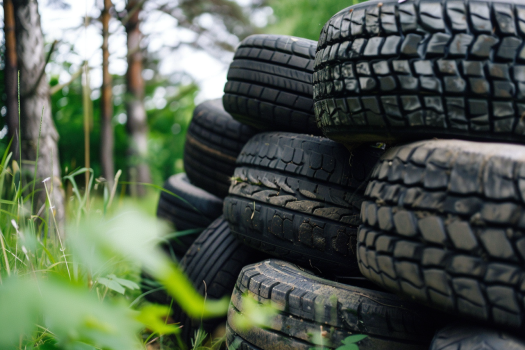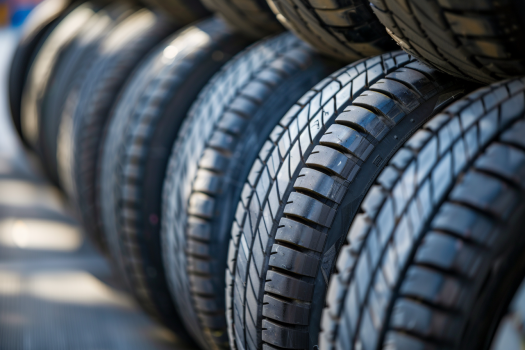Last Updated on April 21, 2024
Discover the Best Trailer Tire Options for Your Towing Needs
When it comes to towing, one of the most critical aspects is choosing the right trailer tires. Whether you’re hauling a travel trailer, boat trailer, or cargo trailer, the tires you select play a vital role in ensuring safe and smooth towing experiences.
In this guide, we’ll unravel the key factors to consider when choosing trailer tires, helping you make informed decisions that enhance safety, longevity, and overall performance during your travels.
Trailer tires are not the same as the tires on your vehicle. They are specifically designed to withstand the unique demands of towing, making them an essential part of your trailer’s setup.
Here are some crucial factors to understand about trailer tires:
- Load Capacity: Trailer tires come with different load ratings, and matching the tire’s load capacity with your trailer’s weight is essential. Overloading can lead to tire failure and unsafe towing conditions.
- Tire Type: There are two primary trailer tire types—radial and bias-ply. Radial tires offer better stability, heat resistance, and longer tread life, making them a preferred choice for many trailer owners.
- Proper Inflation: Maintaining the correct tire pressure is crucial for trailer tires. Underinflation can lead to overheating and tire blowouts, while overinflation can result in a harsher ride and potential tire damage.
Selecting the Right Trailer Tires
Now that we’ve covered the basics, let’s explore the steps to choosing the right trailer tires:
- Determine Your Load Rating: Start by calculating your trailer’s total weight, including cargo and any additional weight. Choose tires with a load rating that exceeds this weight to ensure safety.
- Consider Radial Tires: Radial trailer tires are known for their durability and stability. They are less prone to heat buildup, making them suitable for long trips and heavy loads.
- Check the Tire Size: Refer to your trailer’s manufacturer or owner’s manual for the recommended tire size. Ensure that the selected tires match this specification.
- Regular Maintenance: Once you’ve installed the right trailer tires, perform routine maintenance, including checking tire pressure, inspecting for damage, and ensuring proper alignment.
Maintaining Trailer Tire Health: Tips for a Safe and Smooth Journey
It is clear that to maximize tire life and performance, you must take proper care of your tires. Trailer tires require somewhat different management than regular automobile tires. Here are the basics:
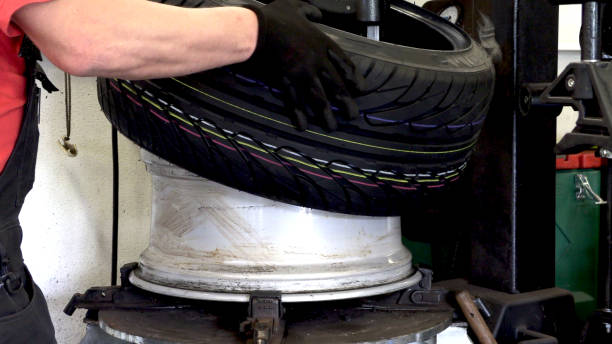
Monitor Your Tire Pressure
- Check the pressure of your trailer tires before use to make sure your trailer tires are not underinflated. Underinflation causes excessive heat, which breaks down the internal structure of your tires.
- Ensure your load weight is in line with the load index of your tires. Never overload your trailer.
Promote Even Tire Wear
- Rotate your tires for even treadwear and weight distribution.
- Never mix bias and radial tires on your trailer. It’s one or the other.
Clean Your Tires Correctly
- Keep your tires clean with mild soap and water.
- Stay away from any tire-care products that are made with alcohol or petroleum distillates.
- For boat trailers, always wash your tires and wheels immediately after exposure to salt water.
Stay Out of the Sun When Possible
- Cover your tires with UV-reflecting tires and wheel covers when parked.
- Or cover your tires with plywood boards when parked.
- Click the link for more on the maintenance of trailer tires in storage.
Catch Blowouts in Advance
- Inspect the tires for any cuts, snags, bulges, or punctures.
- Inspect your tires for signs of outside tire rot.
How to Inspect Your Tires for Cracks That Can Lead to Tire Rot
Tires are subject to dry rot from ozone and sunshine. It is not unusual to find ozone cracks on your tires, and it’s a good idea to look for them before using your trailer after it has been in storage for the winter.
Cracks can also be caused by a sudden change in temperature, such as when tires on a boat trailer, hot from driving, are suddenly driven into cold water to launch a boat. When you find a crack, check to see if it is merely superficial or if it might be a severe problem on the road.
Press the tire around the sides of the crack to force it open so you can look inside it. If you can see the cords, you probably need a new tire. Note: This is an informal test. Always have your tires inspected by a qualified tire technician for an accurate check.
Consider having your trailer tires filled with nitrogen to slow the growth of inside tire rot, sometimes caused by moisture in the compressed air.
Replace Aged
Because of the stress and unique construction of trailer tires, we recommend replacing them every three to five years, whether or not they appear worn out. Again, please have your tires checked by a qualified tire technician.
Conclusion
In conclusion, the right trailer tires are essential for safe and hassle-free towing. Whether you’re hauling cargo, a camper, or valuable belongings, choosing the correct trailer tires can significantly impact your towing experience. Don’t compromise on safety or performance. Visit Tire Easy (https://www.tires-easy.com/) today to explore a range of quality trailer tires and ensure your next trip is smooth and secure.
Choosing the right tires is essential for safe and smooth towing experiences. By understanding the load capacity, tire type, and proper maintenance, you can make informed decisions that enhance the longevity and performance of your trailer tires. Invest in quality trailer tires that match your trailer’s needs, and you’ll enjoy worry-free journeys.
FAQs
What is the best type of tire for a trailer?
The best type of tire for a trailer is a trailer-specific tire designed to handle the unique demands of towing. Trailer tires come in various types, including radial and bias-ply. Radial tires are famous for their durability, stability, and resistance to heat buildup. Selecting tires rated for your trailer’s weight capacity and intended use is essential.
What kind of tires do trailers use?
Trailers typically use trailer-specific tires. These tires are designed to carry heavy loads, provide stability, and withstand the rigors of towing. Radial trailer tires are a common choice due to their strength, even wear, and superior performance under load. They ensure safe and efficient towing for various trailer types, including travel, boat, and cargo trailers.
What is different about trailer tires?
Trailer tires differ from passenger car tires in their construction and purpose. Railer tires are engineered to carry heavy loads and are typically reinforced with stronger sidewalls to handle lateral forces during towing. Hey is also designed to withstand prolonged periods of inactivity without flat spotting. These features make trailer tires suitable for the specific demands of towing.
What size is a trailer tire?
Trailer tire sizes can vary depending on the type and size of the trailer. ommon trailer tire sizes include 13-inch, 14-inch, 15-inch, and larger. The appropriate size for your trailer depends on its weight capacity and specifications. Choosing the right tire size is essential to ensure safe towing and prevent overloading.



